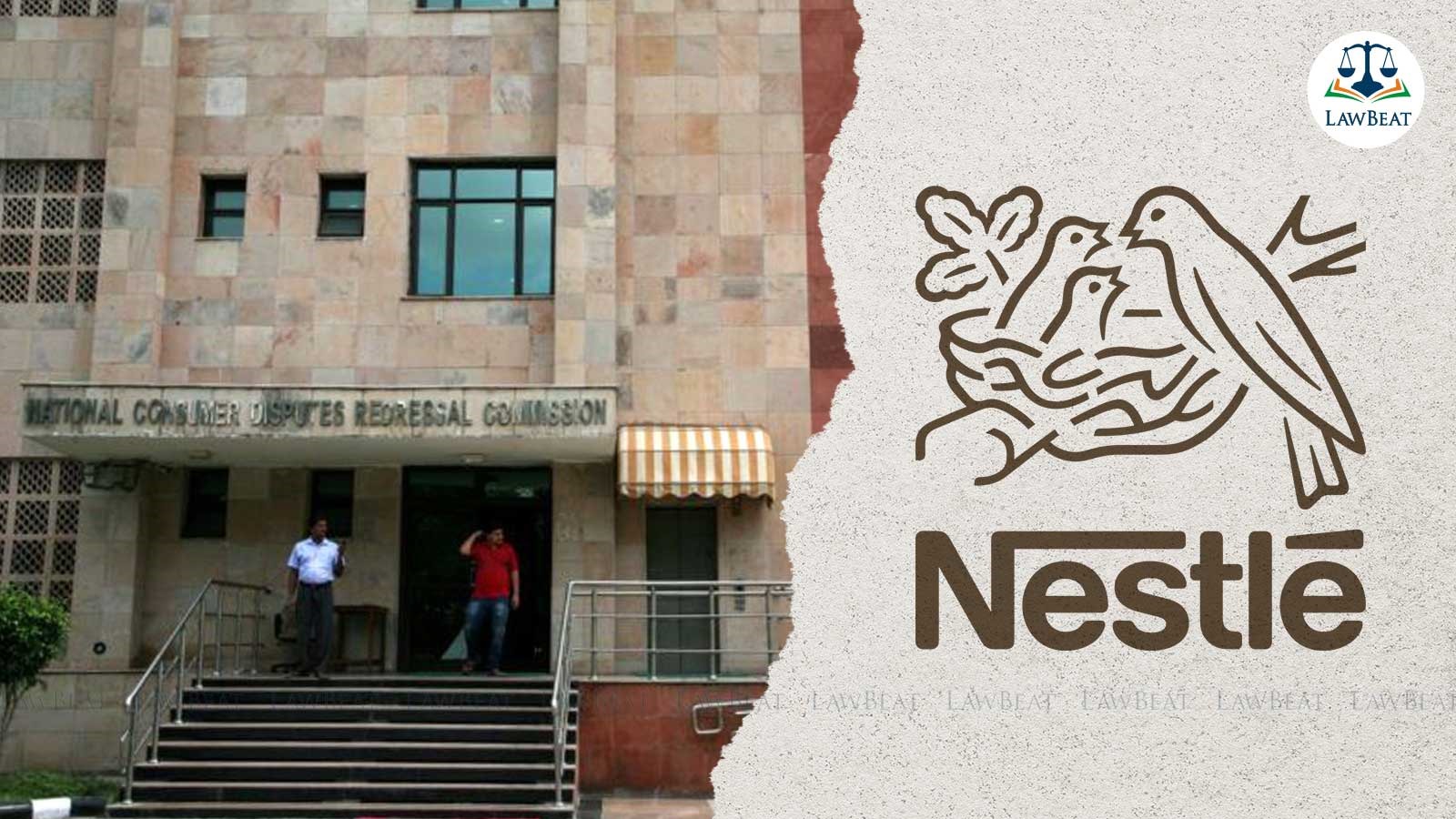NCDRC Dismisses Central Govt's Complaint Against Nestle Over Food Safety

The complaint accused the company of manufacturing and selling products with clear misrepresentation, deceptive practices, and potential use of hazardous substances. These actions were considered unsafe for public health and were seen as a breach of consumer protection laws
The National Consumer Disputes Redressal Commission (NCDRC), in its recent ruling, dismissed the Central Government's complaint against Nestle concerning food safety. The Commission cited lack of sufficient evidence to support claims of deficiencies or unfair trade practices.
The Commission presided by Justice A. P. Sahi held, “Thus neither the violation of the advisory nor the violation of the provisions of either the Food Safety and Standard Act, 2006, or any ingredient under the Consumer Protection Act, 1986, appears to have been established for proceeding to grant any relief in this complaint. Once the scientific analysis and the clarifications issued by the Government itself do not and have not indicted the Opposite Party, there is no material to support the allegations made in the complaint for proceeding any further”.
The Commission further noted that Nestle did not breach any legal provisions, making the complaint baseless. There was no evidence of breaches of advisories or violations of food safety or consumer protection laws, so no relief was warranted in this case, Commission held.
Department of Consumer Affairs had lodged a complaint under the Consumer Protection Act, 1986, alleging that Nestle India Limited (Nestle) engaged in deceptive practices and potentially hazardous ingredient use in its products, including Maggi Masala Noodles, Maggi Oats Masala Noodles, and other variants.
Representing the Union, Additional Solicitor General Vikramjit Banerjee asserted that these actions jeopardized the health of Indian consumers and contravened consumer protection laws. The aim was to stop Nestle from producing any products that could pose health risks, given the widespread consumption of their goods.
This action highlighted concerns about Nestle India Limited's operations in producing and selling food items in India, particularly the popular Maggi noodles and their variations, which are widely consumed, especially among children. The complaint underscored the government's commitment to safeguarding consumer rights and preventing adverse health effects from potentially harmful food products. It argued that despite being marketed as safe and enjoyable, these products were neither healthy nor safe.
Additionally, this issue gained significance following guidelines from the Ministry of Health and Family Welfare and the Department of Food Safety and Standards Authority of India, reflecting broader concerns about food safety and consumer protection.
During the proceedings, ASG Vikramjit Banerjee argued that even if certain reports were accurate, they should be independently assessed, as directed by the Supreme Court. He alleged deceptive labeling under the Food Safety and Standards Act, 2006, and unfair trade practices under the Consumer Protection Act, 1986, citing international standards to support his case.
Senior Advocates Harish Salve and Amit Sibal, representing Nestle, emphasized that the clarifications issued by the Food Safety Authority regarding MSG labeling were binding and that international measures could not be applied to the present case. He urged acceptance of the CFTRI report and requested the dismissal of the complaint. Senior Advocate Sibal also drew attention to the Food Safety and Standard (Packaging and Labelling) Regulations, 2011, highlighting the roles of empowered laboratories and research institutions. He argued that none of these provisions were violated, nor was there any evidence to suggest otherwise.
The Commission, after hearing the legal representatives of both sides and reviewing the case records, lodged a complaint concerning the welfare of citizens who consume the food products in question, which were popular among consumers, especially children. The aim was to ensure the safety of these widely consumed products.
The Commission noted that the complaint arose from laboratory tests, administrative actions, and concerns regarding the safety of Nestle's food products. Legal challenges were made against advisory measures, ultimately leading to a ban order on the products, which was later lifted. Despite subsequent evaluations and legal proceedings, no violations of food safety laws were found regarding the said products, the commission added.
The complaint also raised concerns about the accuracy of laboratory tests, leading to further legal actions and examinations of seized products. However, the submitted reports confirmed that the lead content was within permissible limits, closing the inquiry on this matter. Additionally, concerns about product labeling were addressed through government clarifications.
Based on these clarifications and evaluations, it was concluded by the Commission that there were no violations observed during the manufacturing process, and the complaint lacked sufficient evidence to support claims of deficiencies or unfair trade practices. Legal provisions have not been violated by Nestle, thus rendering the complaint unsubstantiated, Commission held.
Neither breaches of advisories nor violations of food safety or consumer protection laws have been established, warranting any relief in this case, the Commission opined.
Case Title: Union Of India v Nestle India Limited, Nestle House (Consumer Case No. 870 Of 2015)
